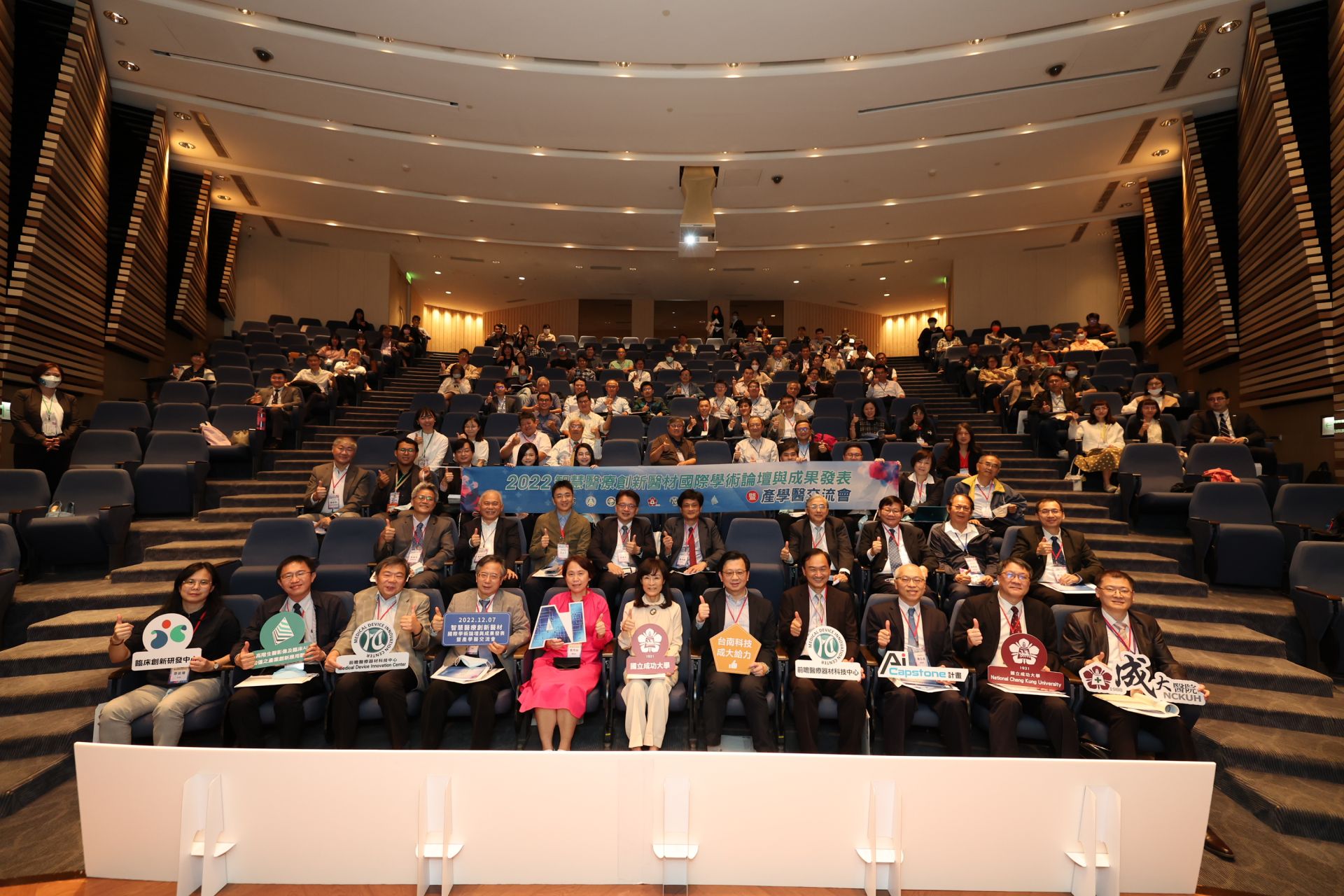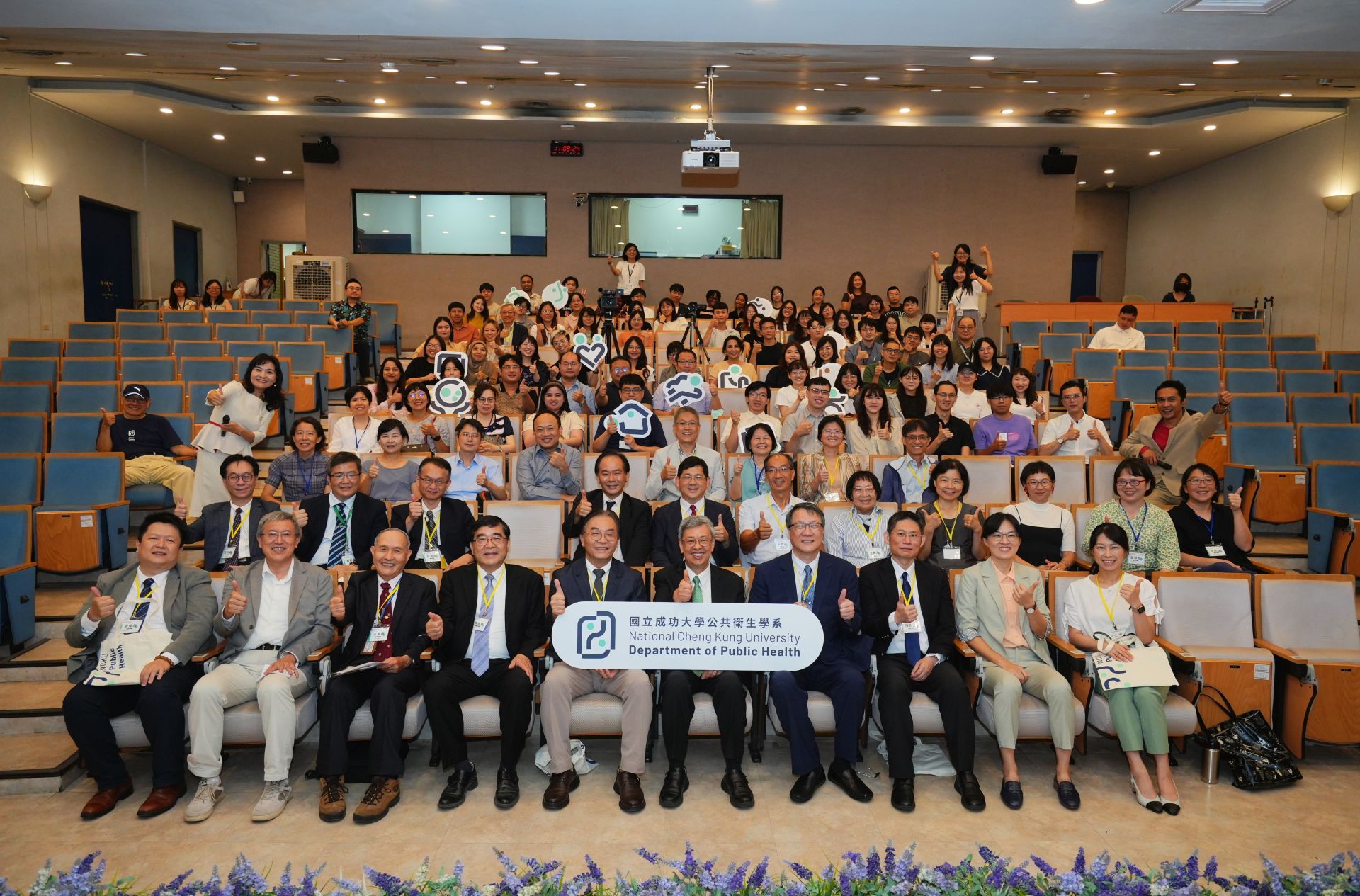SDG3
Dr. Ritchey, President of the ISPE, Visits NCKU to Strengthen Real-World Data Applications and International Collaboration
The Population Health Data Center at National Cheng Kung University (NCKU) recently invited Dr. Mary Beth Ritchey, President of the International Society for Pharmacoepidemiology (ISPE) and a doctor at Rutgers University, USA, to visit the university. During her visit, Dr. Ritchey shared her extensive expertise in the application of Real-World Data (RWD) and engaged in in-depth discussions with experts from the Population Health Data Center, NCKU College of Medicine, and NCKU Hospital. The discussions focused on how Real-World Evidence (RWE) can enhance the regulatory oversight and decision-making for medical product safety and efficacy, ultimately making a significant impact on clinical practice and public health.
On December 6, 2024, Dr. Ritchey held extensive discussions with representatives from the Population Health Data Center, the Department of Pharmacy and Institute of Clinical Pharmacy and Pharmaceutical Sciences, the Office of International Affairs at NCKU College of Medicine, and NCKU Hospital. She emphasized that compared to traditional randomized controlled trials, RWD offers advantages such as broader and more representative population coverage and the ability for long-term follow-up. These attributes enable more rapid and efficient assessment of drug and medical device safety and effectiveness, and even allow for the exploration of off-label uses, helping to bridge the limitations of randomized controlled trials.
She also shared the regulatory frameworks established by international agencies such as the U.S. Food and Drug Administration (FDA) and the European Medicines Agency (EMA) to promote the application of RWE. Additionally, she provided case studies illustrating how researchers have leveraged RWE to expand indications for anti-cancer drugs, accelerate the adoption of robotic-assisted surgical devices, and enhance the time efficiency of AI-driven medical imaging technologies.
Director Edward Lai of the Population Health Data Center emphasized that the application of RWD not only improves the safety and efficacy of medical products but also lays the foundation for international research collaborations, further advancing global health sustainability. He highlighted that inviting international scholars to discuss how epidemiological research can drive global and policy-level impact aligns with the core values of the United Nations Sustainable Development Goals (SDGs). This visit particularly focused on SDG 3 (Good Health and Well-being), SDG 9 (Industry, Innovation, and Infrastructure), and SDG 17 (Partnerships for the Goals).
Director Edward Lai pointed out that despite its potential, the application of RWE still faces several challenges, including data quality, standardization of cross-national analyses, data accessibility, and the external validity of AI models. Moving forward, it is essential to strengthen international collaboration, promote transparent research practices, and establish robust data privacy protection systems to facilitate global cooperation and resource sharing.
He further mentioned that the Population Health Data Center is currently implementing the 2030 Cross-Generational International Young Outstanding Scholars Program and is focused on developing an open-access platform for causal inference analysis using RWE (the Marine Project). This initiative aims to promote the use of RWD, pharmacoepidemiology, and causal inference through an open platform, lowering the barriers to learning and enhancing the accessibility of analytical techniques.
At the same time, the project will provide methodologies, educational resources, and platform functionalities to promote Open Science and data transparency, attracting more researchers to participate and collectively enhance the quality and applicability of RWE research. These efforts not only lay the foundation for future international collaborations, but also mark a new initiative in equitable education and research applications in the field of RWE.
Looking ahead to 2025, the Population Health Data Center at NCKU remains committed to promoting the application of RWD as its core mission. The center will continue working on improving data quality, standardizing cross-national analyses, and enhancing data privacy protection while translating research findings into impactful policy recommendations. By adhering to the core values of SDGs and integrating education outreach, international collaboration, and resource sharing, the center aims to develop new methodologies, improve research transparency, and maximize the real-world application of its findings.
ISPE is a global organization dedicated to advancing the field of pharmacoepidemiology. It focuses on drug safety monitoring, drug utilization research, comparative effectiveness, and therapeutic risk management to improve public health. ISPE provides a collaborative platform for professionals from academia, industry, government agencies, and nonprofit organizations to explore key issues in epidemiology, pharmacy, medicine, law, and health economics.
On December 6, 2024, Dr. Ritchey held extensive discussions with representatives from the Population Health Data Center, the Department of Pharmacy and Institute of Clinical Pharmacy and Pharmaceutical Sciences, the Office of International Affairs at NCKU College of Medicine, and NCKU Hospital. She emphasized that compared to traditional randomized controlled trials, RWD offers advantages such as broader and more representative population coverage and the ability for long-term follow-up. These attributes enable more rapid and efficient assessment of drug and medical device safety and effectiveness, and even allow for the exploration of off-label uses, helping to bridge the limitations of randomized controlled trials.
She also shared the regulatory frameworks established by international agencies such as the U.S. Food and Drug Administration (FDA) and the European Medicines Agency (EMA) to promote the application of RWE. Additionally, she provided case studies illustrating how researchers have leveraged RWE to expand indications for anti-cancer drugs, accelerate the adoption of robotic-assisted surgical devices, and enhance the time efficiency of AI-driven medical imaging technologies.
Director Edward Lai of the Population Health Data Center emphasized that the application of RWD not only improves the safety and efficacy of medical products but also lays the foundation for international research collaborations, further advancing global health sustainability. He highlighted that inviting international scholars to discuss how epidemiological research can drive global and policy-level impact aligns with the core values of the United Nations Sustainable Development Goals (SDGs). This visit particularly focused on SDG 3 (Good Health and Well-being), SDG 9 (Industry, Innovation, and Infrastructure), and SDG 17 (Partnerships for the Goals).
Director Edward Lai pointed out that despite its potential, the application of RWE still faces several challenges, including data quality, standardization of cross-national analyses, data accessibility, and the external validity of AI models. Moving forward, it is essential to strengthen international collaboration, promote transparent research practices, and establish robust data privacy protection systems to facilitate global cooperation and resource sharing.
He further mentioned that the Population Health Data Center is currently implementing the 2030 Cross-Generational International Young Outstanding Scholars Program and is focused on developing an open-access platform for causal inference analysis using RWE (the Marine Project). This initiative aims to promote the use of RWD, pharmacoepidemiology, and causal inference through an open platform, lowering the barriers to learning and enhancing the accessibility of analytical techniques.
At the same time, the project will provide methodologies, educational resources, and platform functionalities to promote Open Science and data transparency, attracting more researchers to participate and collectively enhance the quality and applicability of RWE research. These efforts not only lay the foundation for future international collaborations, but also mark a new initiative in equitable education and research applications in the field of RWE.
Looking ahead to 2025, the Population Health Data Center at NCKU remains committed to promoting the application of RWD as its core mission. The center will continue working on improving data quality, standardizing cross-national analyses, and enhancing data privacy protection while translating research findings into impactful policy recommendations. By adhering to the core values of SDGs and integrating education outreach, international collaboration, and resource sharing, the center aims to develop new methodologies, improve research transparency, and maximize the real-world application of its findings.
ISPE is a global organization dedicated to advancing the field of pharmacoepidemiology. It focuses on drug safety monitoring, drug utilization research, comparative effectiveness, and therapeutic risk management to improve public health. ISPE provides a collaborative platform for professionals from academia, industry, government agencies, and nonprofit organizations to explore key issues in epidemiology, pharmacy, medicine, law, and health economics.
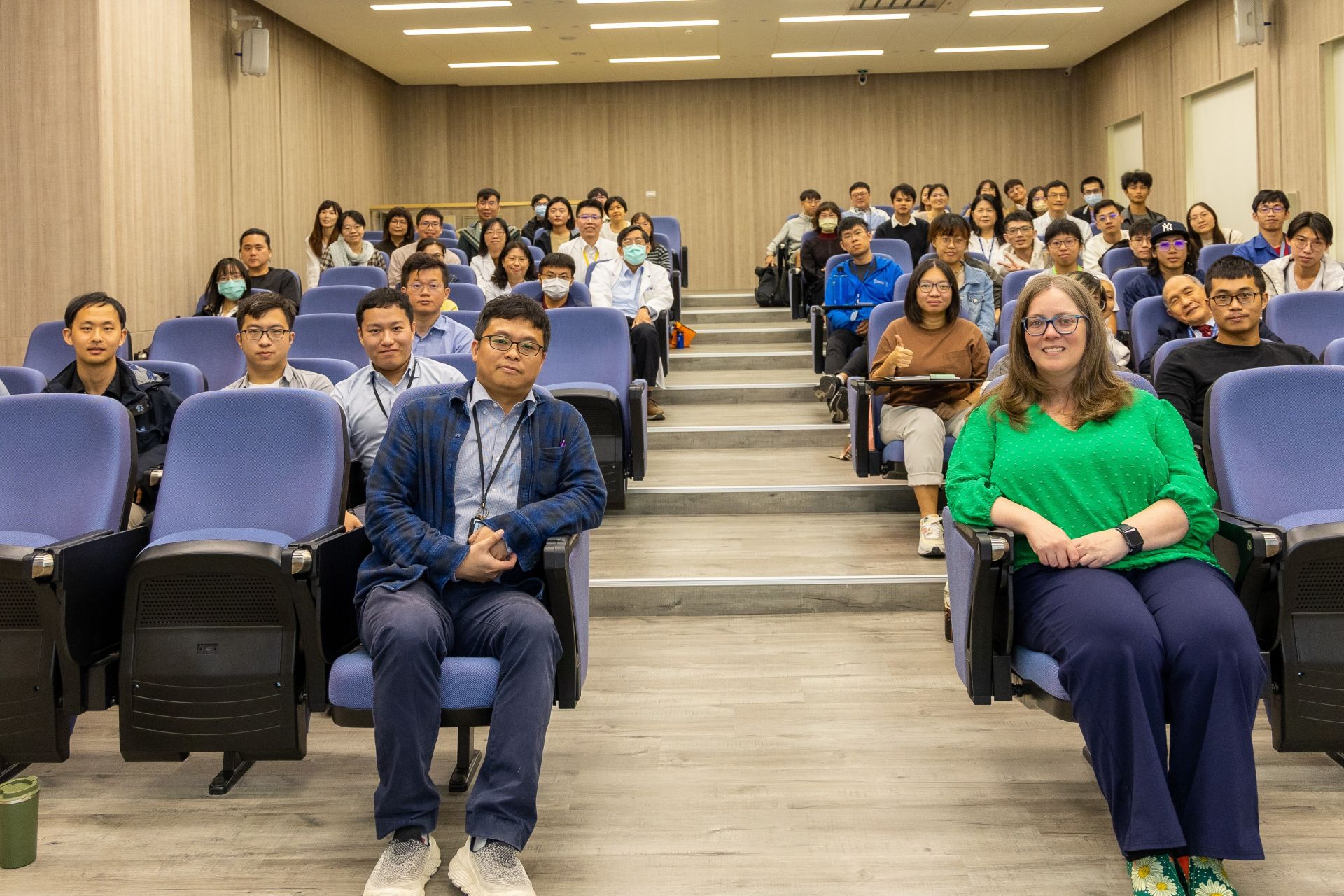
Dr. Mary Beth Ritchey, Director Edward Lai, and the participants took a group photo together
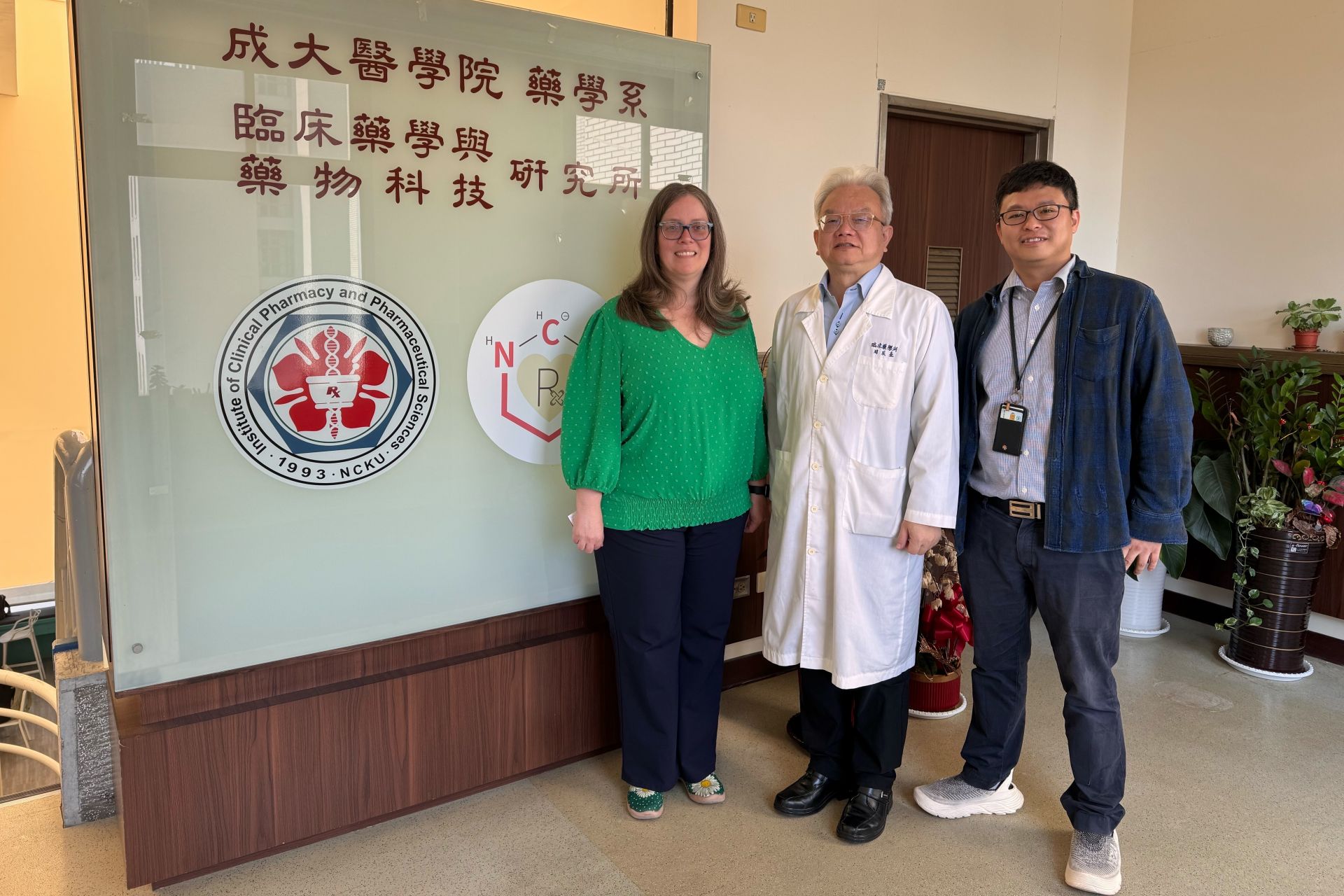
Dr. Mary Beth Ritchey (left), Director Edward Lai of the Population Health Data Center (right), and Director Chen-Hsi Chou of the Department of Pharmacy, College of Medicine (center) take a group photo
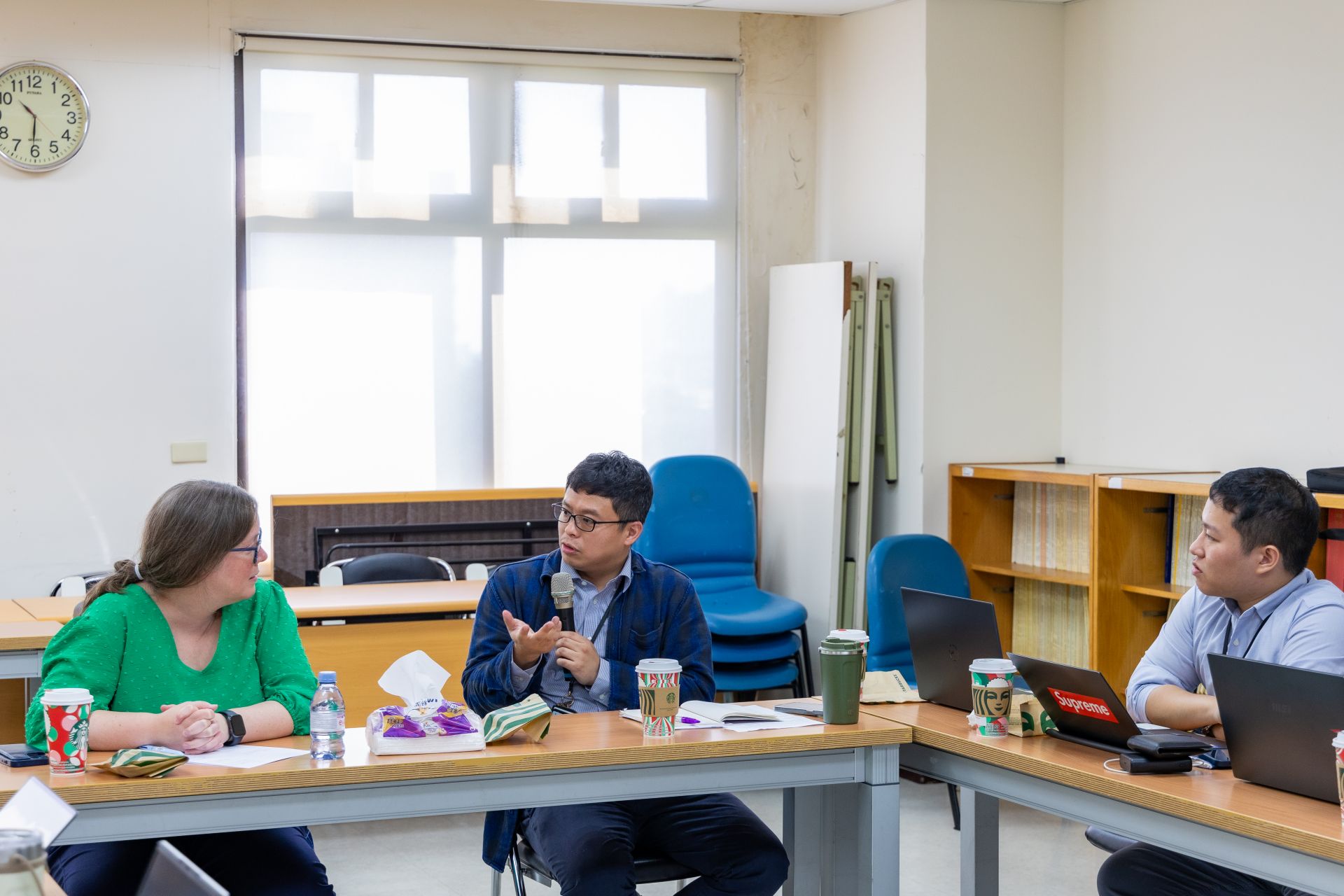
Dr. Mary Beth Ritchey discusses the marine project with members of the Population Health Data Center team
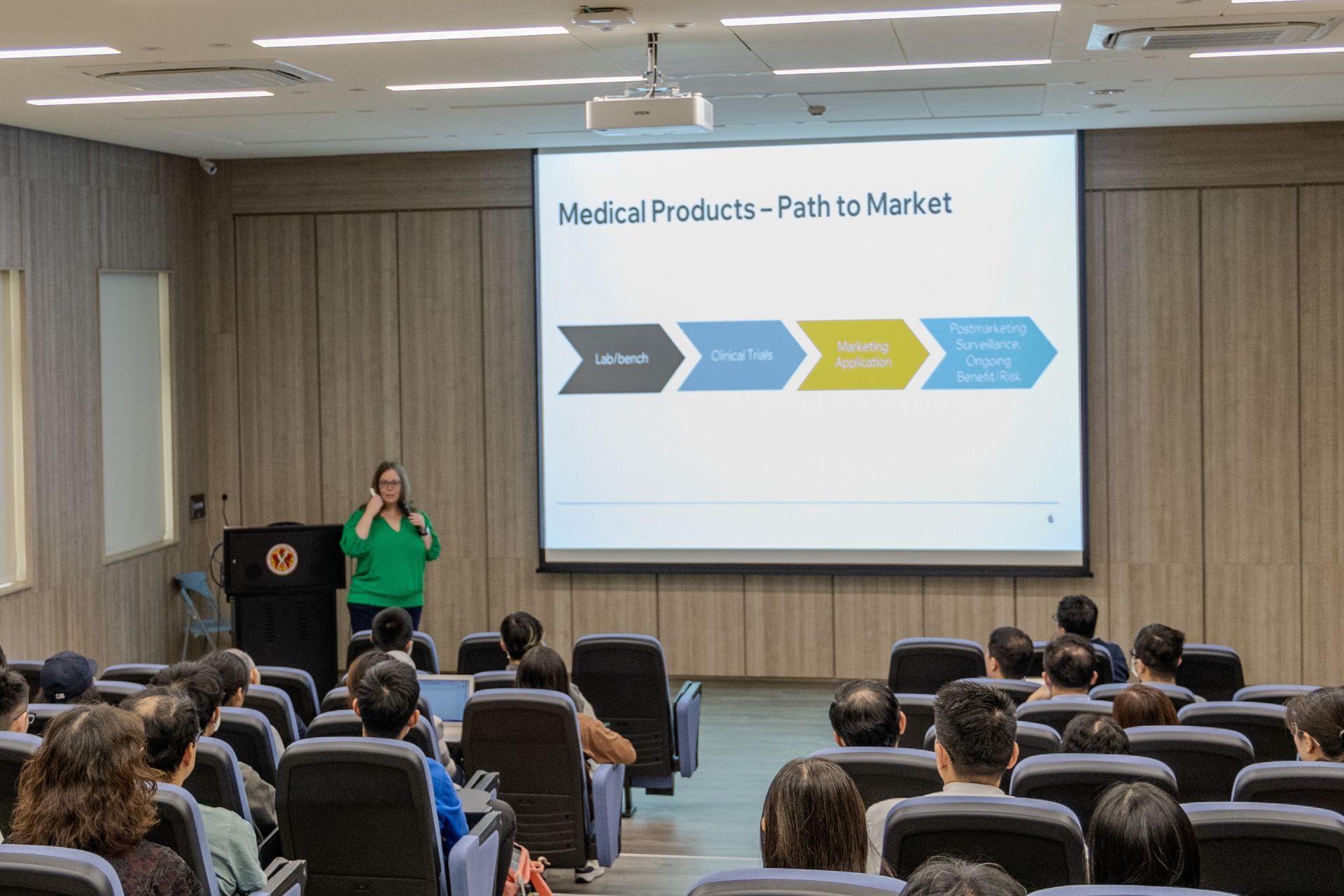
A scene from Dr. Mary Beth Ritchey's speech






